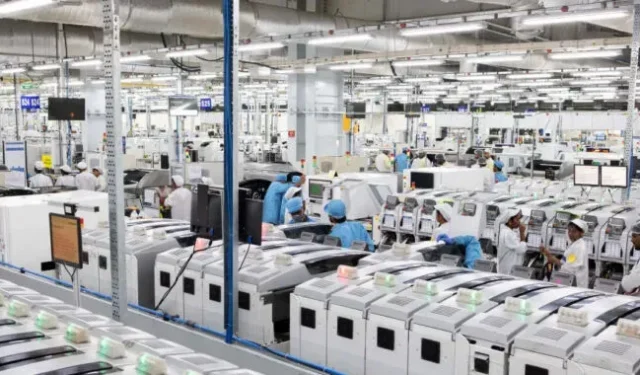Apple and Foxconn urge Indian state to loosen labor laws

Apple and manufacturing partner Foxconn were among the companies that initiated a landmark liberalization of labor laws in the Indian state of Karnataka last month, according to three people familiar with the matter.
Their successful lobbying for new legislation means that two-shift production can take place in India, similar to the practice of the two companies in China, their main manufacturing base. The law gives the southern state one of the most flexible operating modes in India as the country seeks to become China’s alternative manufacturing base.
Karnataka’s action is an attempt to seize the opportunity created by companies seeking to end their over-reliance on Chinese manufacturing after months of Covid-19 disruptions that have rocked global supply chains.
“India should be the next major manufacturing hub,” said an Indian government official who asked not to be named. “When we compare India with other countries….. we have to greatly increase our efficiency in terms of increasing productivity.”
Rajeev Chandrasekhar, India’s Minister of Electronics and Information Technology, said last week that Apple phones will be manufactured at a new 300-acre factory in Karnataka. Foxconn has not confirmed any factory plans.
The state, the hub of India’s tech industry, passed an amendment to its factory law enforcement last week to allow 12-hour shifts, up from the previous nine-hour limit. It also relaxed night work rules for women, who dominate electronics production lines in China, Taiwan and Vietnam but are underrepresented in India’s workforce. The legislation caps the maximum number of working hours at 48 per week, but also increases the amount of overtime allowed to 145 over a three-month period, up from the previous 75.
The official said Karnataka amended its labor laws after “many suggestions”from Indian industry lobby groups and foreign companies, including Foxconn and Apple. Foxconn and Apple declined to comment.
“This is what we and the customer were aiming for,” said a person close to Foxconn, referring to Apple. “This adjustment is critical to building efficient production here on a large scale.”
The person said that India, set to overtake China as the world’s most populous country this year, is a promising market that Foxconn can no longer ignore, but large gaps remain in the investment environment between India and China.
“Being able to run production in two 12-hour shifts around the clock would be a big step to get us closer to where we need to be,” the person said.
Narendra Modi’s government is trying to promote manufacturing, which still plays a modest role in India’s service-oriented economy, under the slogan “Make in India”.
Both the central government and Indian states, especially in southern India, are offering incentives to investors in electronics and other sectors in an attempt to poach manufacturers looking to diversify away from China.
Foxconn, which currently manufactures the iPhone at a plant in Tamil Nadu, has spoken of expanding its operations to Karnataka and the neighboring state of Telangana, but has not detailed its production plans for Apple. However, Foxconn Chairman Yang Liu visited the cities of Hyderabad in Telangana and Bangalore in Karnataka last week in one of the clearest signs that the Taiwanese electronics group plans to increase its presence in India.
Apple also assembles the iPhone in India at rival Taiwanese manufacturers Pegatron and Wistron.
Leave a Reply